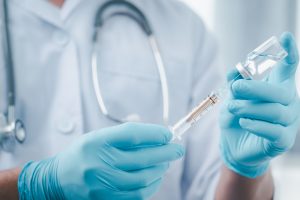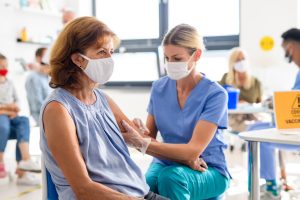The European Union and the Government of Georgia summarized the results of the first phase of the European Neighbourhood Programme for Agriculture and Rural Development (ENPARD) in Georgia, and announced further EU funding for agriculture, at a conference entitled “Improving rural lives,” launched at the Expo Georgia today. The conference was attended by the Prime Minister of Georgia Giorgi Kvirikashvili, Ambassador of the European Union to Georgia Janos Herman, Minister of Agriculture of Georgia Levan Davitashvili, members of Georgian government, EU partners and local and international organizations implementing the ENPARD program.
“I would like to express our deepest gratitude to the EU for the success it has provided our country; and the assistance within the agriculture and rural sector has to be especially noted, which we of course consider as trust from our partners, and at the same time a confirmation to the fact that the reforms in our country are developing in the right direction,” Prime Minister Kvirikashvili said. He also noted that the 77.5 million EUR released for the third phase of the ENPARD, with an overall financing for all three phases of the program of 180 million EUR, is of crucial importance for Georgia, as the development of agriculture and improving rural lives is one of the priorities of the Georgian government.
“We have made significant progress in the sector today, and this is thanks to the effective and coordinated work of the government, international donor organizations, partner countries and the private sector. Signing the Association Agreement with EU opened new possibilities to Georgia, and of course these possibilities entail the very important reforms that we’re implementing,” Kvirikashvili pointed out, as he went on to say that Georgia is now starting to fulfil all the obligations, and that the EU is an active supporter of the country in the process.
“The goal of our government is to support the development of a business oriented agricultural sector and assist Georgia to become an exporter of these products” the Prime Minister emphasized, underling the assistance of the ENPARD program, which from 2013 already assisted in raising effectiveness of the agricultural institutions in the country, and fostered the reforms implemented within the agriculture sphere.
The PM said that 280 cooperatives received EU financing and technical assistance, while over 1000 cooperatives received grants. In 2015, the EU launched pilot projects for rural development in Lagodekhi, Borjomi and Kazbegi. According to Kvirikashvili, over 120 initiatives were financed in the areas of agriculture, tourism, social services, and environmental protection. Within the framework of this initiative, over 700 families were given employment opportunities, and over 8 000 people living in rural areas had a chance to improve their living conditions.
“I hope that the ENPARD third phase will bring as many tangible results as the two previous phases of the program” Giorgi Kvirikashvili noted.
“I would like to thank Mr. Janos Herman, Ambassador of the European Union to Georgia, who’s personally actively involved in the implementation process of the programs, and I would like to thank the European Union for opening up new opportunities for Georgia after signing the Association Agreement and DCFTA, which bring new possibilities for people living in rural areas of our country, and I’m sure that with the consistent steps we’re undertaking, we’ll improve living conditions in these rural areas, and that we can aim for Georgia to have an apt scale of economy, and for exporting Georgian products to the European market” the PM concluded.
The first phase of ENPARD ran from 2014-2017 with a budget of 52 million EUR (over 150 million GEL). The programme was based on three key pillars: (1) Helping modernise and professionalise the Ministry of Agriculture and related institutions so they could better assist farmers; (2) Promoting and developing the cooperative model of farming in Georgia; and (3) Introducing the notion of rural development in Georgia, which means moving beyond only agriculture to create other employment opportunities in rural areas.




